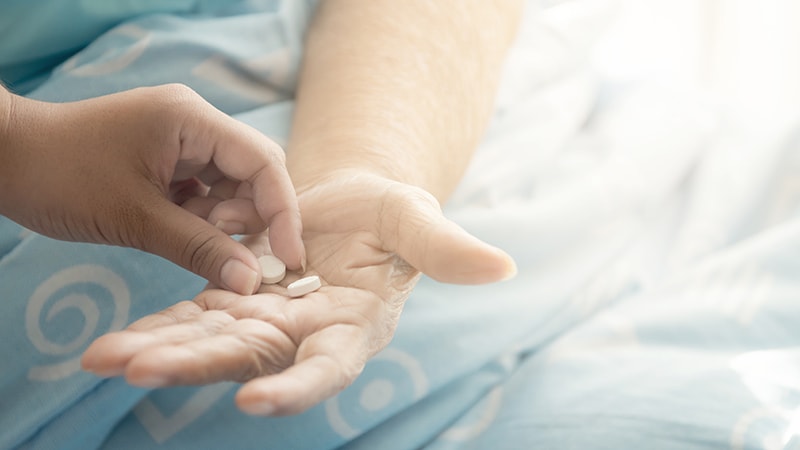Patients who visit American and Israeli hospital emergency departments at night pay a price, a new study suggests: Physicians were less likely to prescribe painkillers at discharge, possibly because exhaustion sapped their empathy.
The findings, published June 27 in the Proceedings of the National Academy of Sciences, don’t definitively prove that tired doctors are less responsive to the pain needs of patients. Still, “we know that sleep deprivation induces a more self-centered state, leading to social withdrawal and impaired communication. And elevated distress has been associated with reduced empathic care and prosocial behavior,” said study co-author Tom Gordon-Hecker, PhD, a lecturer at Ben-Gurion University of the Negev, Beersheba, Israel, in an interview.
The researchers launched the study to better understand how biases could affect the treatment of pain. “We already knew from the literature that sleep deprivation hinders both cognitive processes and emotional ones. We thought that studying the effects of night shifts on empathy and consequent decision-making would be an important addition to the field,” study co-author Anat Perry, PhD, director of the Social Cognitive Neuroscience Lab at Hebrew University of Jerusalem, told Medscape Medical News.
For the study, the authors analyzed datasets from 2013-2020 regarding 9157 emergency department visits at Hadassah-Hebrew University Medical Center in Jerusalem and 4325 visits at the University of Missouri Health Center in Columbia. The researchers compared painkiller prescriptions at discharge during day shifts and night shifts (from 8 PM to 8 AM or 10 AM).
After adjustment for possible confounders, the researchers found that a lower percentage of patients received painkillers during night shifts vs. day shifts (50% vs. 39%; odds ratio (OR), 0.65; 95% CI, 0.58 – 0.74; P < .001).
Opioid analgesics specifically were also less likely to be prescribed during night shifts vs day shifts (20% vs. 28%; OR, 0.66; 95% CI, 0.57 – 0.76; P < .001). The difference was mainly in patients with moderate to severe pain.
What’s the explanation? “We think that empathy is especially important for ambiguous cases, where there is no clear-cut answer as to what and how much medication to prescribe,” said lead author and decision-making researcher Shoham Choshen-Hillel, PhD, an associate professor at Hebrew University of Jerusalem. “When a patient comes with a ruptured appendix, it’s clear that the pain is severe, and they need strong pain medications. However, when a patient complains of a headache or backache, if the doctor feels less empathic, they may underestimate the amount of pain the patient is in, and thus prescribe less medication.”
The researchers didn’t find that other types of drugs were prescribed less at night. “We believe this strengthens our argument that when empathy for others’ pain is impaired, this would manifest in a reduced tendency to prescribe analgesics,” Perry said.
The researchers also conducted a second analysis. They presented hypothetical patient scenarios to 67 resident physicians and found that they showed “reduced empathy for pain” after working night shifts.
As for a fix, Choshen-Hillel cautioned against immediately adjusting shifts: “We know that such a step benefits doctors who experience less sleep deprivation. At the same time, studies have shown that if not backed by increased physician manpower, if could backfire and lead to increased errors in medical care due to frequent shifts and increased patient load.”
The findings make sense to Robert Glatter, MD, an assistant professor of Emergency Medicine at Lenox Hill Hospital/Northwell Health in New York City and editor-at-large for Medscape Emergency Medicine. In an interview, he said “compassion fatigue” — the inability of a medical provider to empathize with a patient’s pain — “adversely affects patient experience and can lead to mistrust and anger toward medical providers.”
He added: “Medical providers who work nights should be aware of the potential for such bias affecting pain management. Having structured guidelines in place, regardless of time or day, can help to more reliably establish criteria for prescribing pain medications when appropriate.”
And, he said, “it’s vital that all medical providers receive training to address this disparity in patients receiving care in the emergency department.”
The study was funded by the Israel Science Foundation, Joy Ventures, the Recanati Fund at the Jerusalem School of Business at the Hebrew University, the Azrieli Foundation, the National Institutes of Health, and the University of Missouri. The authors and Glatter reported no relevant financial relationships.
Proc Natl Acad Sci USA. Published online June 27, 2022. Abstract
Randy Dotinga is a freelance journalist and board member of the Association of Health Care Journalists.
For more news, follow Medscape on Facebook, Twitter, Instagram, YouTube, and LinkedIn
Source: Read Full Article
